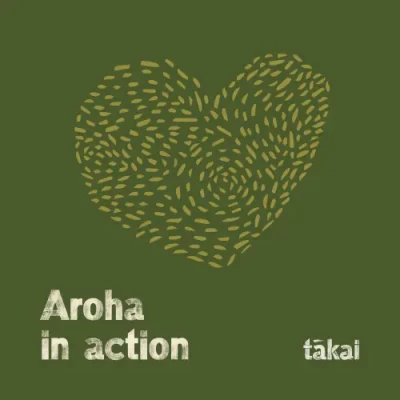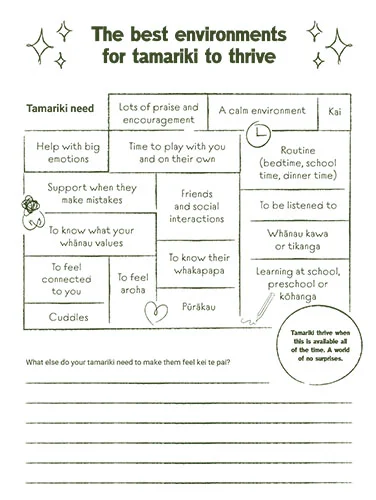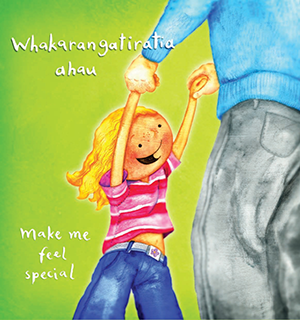
Healing the hurt
Tough things can happen to tamaiti. These have lasting effects. Whānau can put in place ways to respect the mana and tapu of tamaiti.
Tough things happen. Whānau might have talked about some difficult times that they and their tamaiti have been through.
Respecting mana and tapu
If appropriate, you could use the booklet Aroha in action. This little booklet may be the key to whānau realising that:
- harm that happens to their young tamaiti may have lasting effects
- they can make things better for their tamaiti now.
Become familiar with Aroha in action. You may want to choose a page or two, rather than trying to introduce the whole booklet at once. Or, you may decide it makes sense to read the whole book together.
For example, you could say:
"This little book was written by a whānau who were concerned about some of the things that were happening with their mokopuna at the hands of the other adults in the whānau."
"Let’s have a look at this page: Respect the mana and tapu of mokopuna. It says that mokopuna who are humiliated, threatened and shouted at may look obedient and respectful on the outside, but often their anger and mamae (hurt) shows up in their teenage years."
"Mokopuna learn by watching. If they grow up in homes where there is chaos and violence, this is likely to influence how they later behave towards their own partners or tamariki."
- Have you noticed what happens with your tamaiti when there’s negative stuff going on around them?
- What do you think is going on for them?
- What have you noticed?
- What other experiences have occurred that might be similar to this?
- What would you like to have happen?
- Do you think there’s anything you can do to make it better for them?
- What would it be like if you were to talk with other adults about how these negative behaviours influence mokopuna?
- Do you think they realise what strong role models they are?
"Have a look at the pages 'Support parents' and 'Caregivers' and what they say about creating mokopuna-safe spaces within our whare ."
- How does this sound to you?
- What would you need to put it in place in your whānau?
"The last page of this booklet is particularly heart-warming. Let’s read it together."
- Is there anything you want to say about that?
- Or anything more you’d like to talk about?













